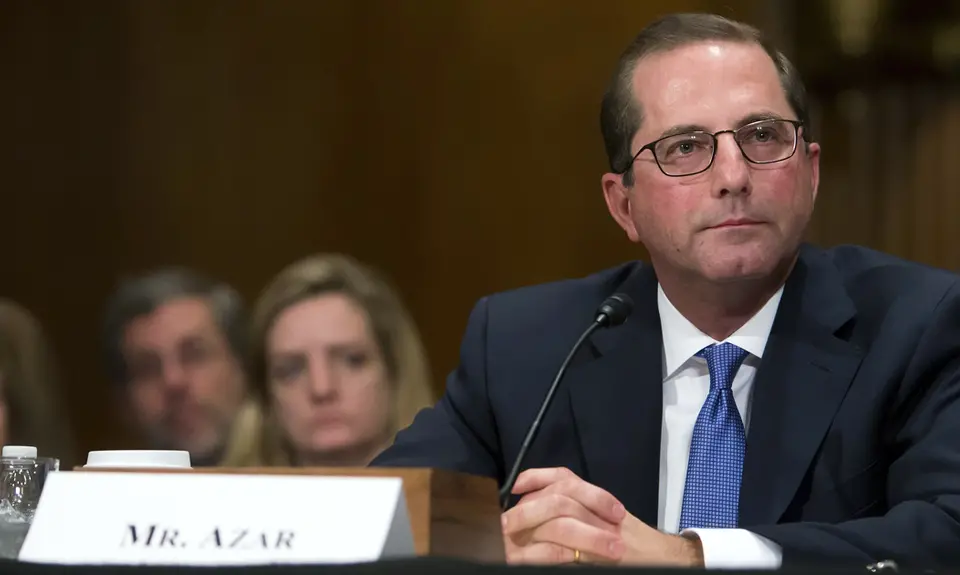Members and allies of the Coalition Against Religious Discrimination (CARD), including People For the American Way and PFAW's African American Ministers In Action, are urging the Department of Health and Human Services to reconsider its decision to exempt federally funded foster care and adoption agencies in South Carolina from federal nondiscrimination protections. These agencies have a duty to act in the best interests of children. Using a religious test to reject potential parents makes it even more difficult for children to find loving homes. Moreover, the South Carolina exemption turns the original promise of the Religious Freedom Restoration Act on its head—it was meant as a shield for religious freedom, not as a sword of discrimination. You can download our letter here.
Dear Secretary Azar:
We, the undersigned members and allies of the Coalition Against Religious Discrimination (CARD), write to denounce the recent Department of Health and Human Services (HHS) decision to exempt federally funded foster care and adoption agencies in South Carolina from the religious nondiscrimination protections provided under 45 CFR § 75.300(c). Paradoxically, the exemption uses the concept of religious freedom as a justification for taxpayer-funded religious discrimination.
CARD is a broad and diverse group of organizations formed in the 1990s to monitor legislative and policy changes impacting government partnerships with religious and other nonprofit organizations and, in particular, to oppose government-funded religious discrimination. Our coalition members appreciate the important role religiously affiliated and other community-based institutions historically have played in addressing many of our nation’s most pressing social needs, as a complement to government-operated programs; indeed, many members of CARD are directly involved in this work. We also recognize that the separation of church and state is the linchpin of religious freedom. In our view, effective government collaboration with faith-based groups does not require the sanctioning of federally funded religious discrimination.
This HHS decision grossly misinterprets the Religious Freedom Restoration Act (RFRA), as requiring the government to allow taxpayer-funded child placement agencies to turn away potential parents and volunteers who cannot meet their religious test. For example, Miracle Hill, the agency whose policy led to the statewide exemption, made clear it would turn down a Jewish volunteer because she did not meet its religious requirements. This discriminatory policy harms children and parents and threatens core civil rights and religious freedom protections. The government should never fund religious discrimination, especially when it is vulnerable children who will pay the price.
The Exemption Harms Children and Parents
Children in foster care have been entrusted to the state for care, stability, and safety. Adoption and foster care agencies that accept government funds to serve these children have a duty to act in the best interests of each child. Using a religious litmus test to reject qualified and caring parents who want to foster and adopt, however, makes it even more difficult for these children to find a loving home. Indeed, a religious test reduces the number of qualified foster and adoptive parents who are able to open their homes to these children. We cannot allow the religious beliefs of a government-funded agency to override the best interest of our most vulnerable children.
In addition, the exemption clearly harms potential parents who are rejected from the government program. No qualified parent should be denied the opportunity to provide a loving home to children in need because they are the “wrong” religion.
This RFRA Exemption Harms Religious Freedom
Some of us were members of the Coalition for the Free Exercise of Religion, which led the effort to persuade Congress to enact RFRA; yet, we all agree that granting the requested exemption is an inappropriate use of the law. RFRA was meant to be a shield to protect religious freedom, not a sword to sanction discrimination against others. This exemption turns the original promise of RFRA on its head—it uses RFRA to disqualify individuals from participating in government programs solely because of their religion. In issuing this harmful policy, HHS ignored the state’s compelling interest in acting in the best interest of children in its care and in not discriminating against potential parents and volunteers because of their religion.
Religious freedom, which is a core American value, requires that those who perform government services must serve everyone, regardless of religion. Ensuring that taxpayer-funded child placement agencies abide by nondiscrimination laws is not hostile to religion—turning away people seeking to engage in government-funded services because they fail a religious test is.
Because granting South Carolina’s request for a RFRA exemption will harm children and families and violate our nation’s fundamental protections for religious freedom, we urge you to reconsider this action.
